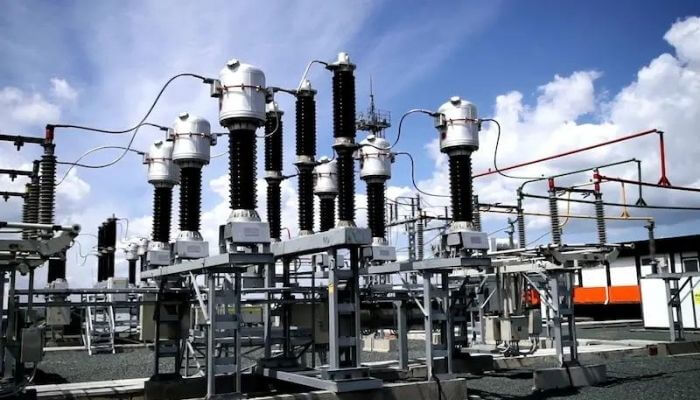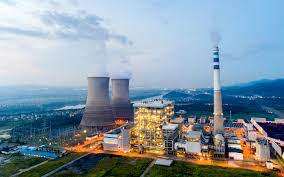This article on Power Industries and Professional Cleaning Services in Nigeria shows importance of the power sectors in any economy and the best way their cleaning services can be handled.

Power companies play a pivotal role in any nation’s economy due to the fundamental importance of electricity in modern society. Their contribution is multifaceted and far-reaching. Firstly, industries heavily rely on a stable and consistent supply of electricity to operate machinery, equipment, and manufacturing processes. Power companies ensure businesses have access to this vital resource, boosting industrial growth and productivity, which, in turn, leads to increased production and economic output.
Furthermore, the economic development of a country is contingent upon a reliable power supply. Such stability attracts investment, encourages the establishment of businesses and industries, and creates job opportunities, ultimately driving overall economic growth. Power companies also facilitate infrastructure development, as they are responsible for building and maintaining the necessary facilities for electricity generation, transmission, and distribution. Consequently, this infrastructure growth positively impacts other sectors of the economy.
Another critical aspect is the role electricity plays in technological advancements and innovation. A stable power supply enables the widespread adoption of technology, communication systems, and information technology, fostering innovation and efficiency across various economic activities. Additionally, electricity significantly enhances the quality of life for individuals, powering homes, providing lighting, and supporting modern appliances, while also facilitating essential services like healthcare and education.
Beyond urban centers, power companies extend their services to rural areas, driving agricultural productivity and contributing to rural development. Moreover, reliable electricity is crucial for educational institutions and healthcare facilities to function efficiently. By ensuring these establishments have uninterrupted access to power, power companies play a vital role in developing the education and healthcare sectors.
Stable power supply also holds significance for attracting foreign direct investment (FDI). Investors seek locations with reliable infrastructure, including electricity, to set up their businesses. As power companies transition to cleaner and more sustainable energy sources, such as renewable energy, they contribute to the country’s efforts in reducing greenhouse gas emissions, promoting environmental sustainability, and addressing climate change concerns.
Some Power sector includes:
- Power Generation: This sector is responsible for producing electricity using various sources of energy. The power generation methods can be classified into the following types: a. Fossil Fuel-Based Generation: Utilizing coal, natural gas, and oil to produce electricity through thermal power plants. b. Nuclear Power Generation: Harnessing nuclear reactions to generate electricity in nuclear power plants. c. Renewable Energy Generation: Utilizing sustainable resources such as solar, wind, hydro, geothermal, and biomass to produce electricity.
- Power Transmission: Once electricity is generated, it needs to be transmitted from power plants to substations and, ultimately, to distribution networks. Power transmission involves high-voltage transmission lines and substations to carry electricity efficiently over long distances.
- Power Distribution: The distribution sector is responsible for delivering electricity from substations to end-users, such as homes, businesses, and industries. Distribution networks consist of medium-voltage and low-voltage lines.
- Electricity Retail: This sector involves the selling and provision of electricity to end-users. Electricity retailers can be private companies or government-controlled entities, depending on the region’s regulations.
- Grid Operations: Grid operators manage and monitor the entire power system, ensuring smooth functioning, reliability, and stability. They balance electricity supply and demand and handle issues like blackouts, emergencies, and grid security.
- Energy Storage: Energy storage has become an increasingly important sector, especially with the integration of renewable energy sources. It involves storing excess electricity during times of low demand and supplying it during peak demand or when renewable sources are unavailable.
- Energy Trading: In deregulated energy markets, energy trading plays a significant role. Companies or traders buy and sell electricity and other energy products, aiming to optimize profits and manage risk.
- Renewable Energy Development: This sector focuses on the research, development, and deployment of renewable energy technologies, as well as exploring innovative ways to harness clean and sustainable energy sources.
- Power Equipment Manufacturing: Companies in this sector manufacture equipment and machinery used in power generation, transmission, and distribution, including turbines, transformers, generators, and control systems.
- Power Infrastructure Development: This sector is involved in the planning, construction, and maintenance of power infrastructure, such as power plants, transmission lines, substations, and distribution networks.
The power industry can be broadly categorized into several sectors, each playing a crucial role in generating, transmitting, distributing, and managing electricity. Here are the main sectors within the power industry:



Power Industries and Professional Cleaning Services in Nigeria- Some of the major Power Distribution Companies in Nigeria are:
- Abuja Electricity Distribution Company (AEDC) – Covers the Federal Capital Territory (FCT), Niger, Kogi, and Nassarawa States.
- Benin Electricity Distribution Company (BEDC) – Covers Edo, Delta, Ekiti, and Ondo States.
- Eko Electricity Distribution Company (EKEDC) – Covers Lagos Island, Lagos State.
- Enugu Electricity Distribution Company (EEDC) – Covers Enugu, Abia, Imo, Anambra, and Ebonyi States.
- Ibadan Electricity Distribution Company (IBEDC) – Covers Oyo, Ogun, Osun, Kwara, and parts of Niger, Ekiti, and Kogi States.
- Ikeja Electric (Ikeja Electric Distribution Company – IKEDC) – Covers Lagos mainland, parts of Ogun State, and some areas in Ikorodu.
- Jos Electricity Distribution Company (JEDC) – Covers Plateau, Bauchi, Benue, and Gombe States.
- Kaduna Electricity Distribution Company (KAEDCO) – Covers Kaduna, Sokoto, Zamfara, and Kebbi States.
- Kano Electricity Distribution Company (KEDCO) – Covers Kano, Jigawa, and Katsina States.
- Port Harcourt Electricity Distribution Company (PHED) – Covers Rivers, Bayelsa, Cross River, and Akwa Ibom States.
How to Handle Cleaning Services in Power Sectors
Handling cleaning services in the power sector is of utmost importance as it ensures the efficient and safe operation of power plants and associated facilities. Power sector cleaning involves cleaning various components and areas within power plants, substations, and other installations. Power plants often handle hazardous materials, and proper cleaning is crucial to maintaining a safe working environment for employees. Compliance with safety regulations is of utmost importance to prevent accidents and ensure the well-being of the workforce. Therefore, professional cleaners who have the experience and certifications are necessary to handle the cleaning.
Cleaning the power sector, particularly in and around power generation facilities and high-voltage areas, requires special precautions due to the potential hazards associated with electrical equipment and the presence of various chemicals and substances. Here are some essential precautions to consider when cleaning the power sector:
- Safety Training: All personnel involved in cleaning activities should receive proper safety training specific to the power sector. Training should cover electrical safety, hazard identification, proper use of personal protective equipment (PPE), and emergency procedures.
- Lockout-Tagout Procedures: Before cleaning electrical equipment or entering restricted areas, implement lockout-tagout procedures to ensure that equipment is de-energized and safely locked to prevent accidental energization.
- PPE Usage: Workers should wear appropriate personal protective equipment, such as insulated gloves, safety goggles, hard hats, and flame-resistant clothing, when cleaning near electrical equipment or in areas with potential hazards.
- Hazardous Material Handling: Be cautious when cleaning areas where hazardous materials are present, such as oil, chemicals, or radioactive substances. Proper containment, disposal, and handling procedures must be followed.
- Fall Protection: Ensure proper fall protection measures are in place when cleaning elevated areas or working on rooftops. Use harnesses and safety lines as necessary to prevent falls.
- Proper Ventilation: Adequate ventilation is essential when working in confined spaces or areas with potential exposure to toxic fumes or gases.
- Equipment Inspection: Before starting any cleaning activity, inspect cleaning equipment, tools, and safety gear to ensure they are in good working condition.
- Identify Electrical Hazards: Be aware of potential electrical hazards, such as exposed wires, damaged insulation, or faulty electrical connections. Avoid contact with energized equipment.
- Secure Tools and Equipment: Ensure that cleaning tools and equipment are properly secured and kept away from electrical equipment to prevent accidental contact or damage.
- Work in Teams: Whenever possible, work in teams or pairs to provide assistance and ensure safety during cleaning tasks.
- Follow Standard Operating Procedures (SOPs): Develop and strictly adhere to standard operating procedures for cleaning specific areas within the power sector. SOPs should include safety guidelines and emergency protocols.
- Communication: Maintain clear and effective communication between team members to coordinate activities and address any safety concerns promptly.
- Emergency Response Plan: Have a well-defined emergency response plan in place in case of accidents, injuries, or equipment failures. Ensure that all workers are familiar with the plan and know how to respond to emergencies.
- Environmental Protection: Implement environmentally friendly cleaning practices and use eco-friendly cleaning agents when possible to minimize the impact on the environment.
Palmacedar Cleaning Limited is a professional cleaning services company with experience in handling power industries with requisite experience and certifications. We be of help in Power Industries and Professional Cleaning Services in Nigeria. For more like Power Industries and Professional Cleaning Services in Nigeria visit our blog regularly.

